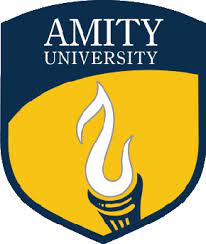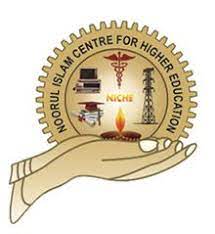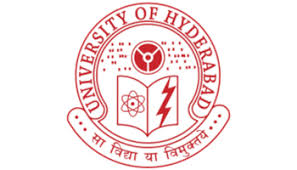The Ph.D. program focuses on the application of fundamental principles of astrophysics to space and cosmology. It helps students develop multidisciplinary and complementary skills across a broad range of technical disciplines. The program is designed to prepare students for careers in aerospace and planetary science. It is accredited by the National Science Foundation and is the best way to enter the field. The University of Exeter offers a PhD in planetary sciences.
The program focuses on astronomy and cosmology, and space instrumentation. The program emphasizes research in astrophysics and cosmology, and includes courses in astroparticle physics, fluid chemistry, and planetary science. The focus of the PhD program is on observing and understanding extrasolar planets, as well as investigating active galactic nuclei and swarms in flight. The program also welcomes contributions from other disciplines.
PhD students will conduct research on stellar physics, exoplanets, and space instrumentation. The program aims to prepare a new generation of researchers to tackle the ambitious goals of the European Commission in the space sector, known as Horizon 2020. In the end, the PhD in Space Science & Technology is an excellent way to get a job in the space industry. But it is not the only benefit.
Ph.D. in Space Science & Technology Eligibility
Candidates who want to take admission in Ph.D. must have a post graduate degree in Space Science & Technology and its relevant discipline with at least 55% marks from a recognized university and must have passed the national level entrance examination or university level entrance examination. National level entrance exam like UGC NET / UGC CSIR NET / GATE / SLET or University entrance exam consisting of written test and personal interview.
The Benefits of a Ph.D. in Space Science and Technology
The aerospace industry is rapidly evolving, and new technologies are emerging every day. Demand for satellite communication, imagery, and launch services is increasing, and this industry is thriving. Breakthroughs in this field have made a significant impact in recent years, such as the successful missions to Mars and the Earth's moon, and the success of Virgin Galactic's first spaceflight.
The PhD in space science offers numerous research opportunities for students. As a student, you will have the opportunity to match your interests with a research project. As a graduate student, you'll also have access to a variety of high-tech companies, research labs, and unique experiments. For example, your PhD project may involve measuring X-rays emitted by thunderstorms. Other projects may focus on studying the electric and magnetic fields produced by lightning.
PhD students can develop a broad understanding of the field by participating in space events. These events help PhD candidates increase awareness of the space sector, meet industry leaders, and develop contacts for future collaboration. There are many ways to get involved in space research. In addition to conducting research, you'll be able to apply your skills to the development of space technology. And you'll be well-equipped for research careers, including teaching assistantships and research assistantships.
The Career and job Opportunities of a PhD in Space Science and Technology
The career opportunities of a Ph.D. in space science are numerous, and it helps to have a strong background in science. A good background in chemistry, biology, and physics is essential. Subjects related to the solar system and nature are also beneficial. Other important areas of study include mathematics and computer sciences, which are useful in many spaces-related occupations. Students should also consider taking a few communication classes to hone their interpersonal skills.
People who are interested in space exploration love to help others learn about their work. They may even get to answer questions from the public and scientists. These interactions can foster collaboration and help workers better understand their own projects. The career is very stressful, as it involves pushing the limits of science. Minor errors can lead to the failure of multimillion-dollar projects or even the loss of lives.
Astronomy is an interesting career path that deals with astronomy and space technology. As an area of study, it involves the design, development, and application of space technologies. A PhD in space science and technology is ideal for people who want to help develop space infrastructure. The field is growing in popularity, and is not only confined to big companies and national space agencies. Increasingly, private companies are stepping into this area as well, increasing the demand for trained professionals.
The Future Scope of a Ph.D. in Space Science and Technology
There are many different jobs in space. You can work on new satellites, develop technologies to map distant planets, and study space pollution. You can also help manage disasters. As a graduate of a Ph.D. program in this field, you will be able to enter the space industry with a career in space. You can expect to be paid well for your work, and your degree will prepare you for a variety of exciting positions.
The future scope of a Ph.D. program in this field is vast. The aerospace industry is constantly developing and refining its technological capabilities. Space scientists are essential to the future of many industries. They help develop satellites and space stations, assist in space exploration, and even help us understand the nature of our universe. In addition to being useful for mankind, space science and technology employ many people, which makes it a high-demand field.
One of the greatest benefits of a Ph.D. in space science is that it provides a broad scope of opportunities and a rewarding career. With a Ph.D. in space science, you will be able to become an engineer, scientist, or astronaut. As a new generation of youth, you will be able to meet the demands of this field with a PhD in your hand.
Ph.D. Research Programme duration
The Ph.D. in Space Science & Technology course is minimum 3 years and maximum 5 in duration. This depends on the university offering the course.
Fees for research programme for Space Science & Technology
The average fee for Ph.D. in Space Science & Technology degree is between INR 50000 and INR 500000.
 5 Years
5 Years
 PhD
PhD
 Research
Research















 back
back